Health TipsWe like to think we're pretty good at digging up responses to some of your burning health care questions, but some responses are best left to the pros. Which is why, after taking to the streets, we contacted Amy Arbogast, a CVS pharmacist supervisor in Indianapolis, Indiana, to get answers to your must-know summer health questions.
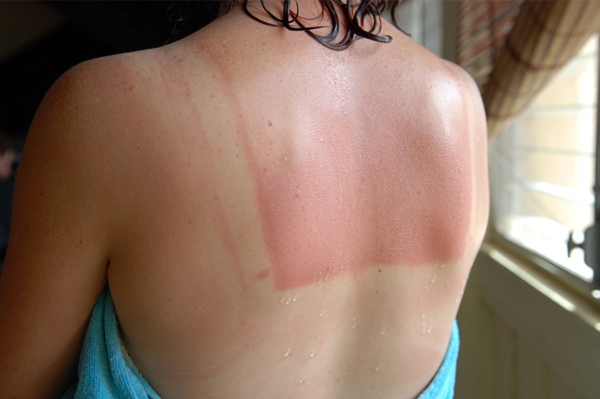
"How can I protect myself from sunburn? What's the best way to treat one if it's already happened?"
- Lindsay, 28
Amy Arbogast: Sunscreen is important because it protects you from ultraviolet (UV) rays, which can cause sunburn and may eventually lead to skin cancer. Use sunscreen with an SPF 15 or higher that contains both UVA and UVB protection. The higher the SPF, the greater the protection from sunburn caused from UV rays. Apply sunscreen at least 30 minutes before initial sun exposure to allow your skin to absorb the sunscreen. If you're out in the sun for a prolonged period of time, wear a wide-brimmed hat and reapply sunscreen every two hours.
If sunburn has already occurred, there are ways to relieve the discomfort. Over-the-counter anti-inflammatory medications, like ibuprofen, may help to reduce pain. Try taking a cool shower or bath or placing a wet, cold towel on the burn. If you have blisters, do not break them; applying dry bandages may help prevent infection. If your skin is not blistering, aloe vera lotion or a moisturizing cream may be applied to the burn.
Treating the feet"Every summer, I spend a lot of time at public pools. How can I prevent athlete's foot or warts?"
– Linda, 34
Amy Arbogast: To prevent athlete's foot, wear sandals or flip flops at public pools and dry your feet thoroughly after swimming. If you are susceptible to getting athlete's foot, or you're spending a lot of time at the pool, using an antifungal powder may help to prevent an infection.
Dealing with yeasty beasties"I've developed a yeast infection as a result of sitting around in a wet bathing suit. How can I treat it quickly?" – Christina, 32
Amy Arbogast: If this is the first time that you've had a yeast infection, or if you are unsure if you have one, you should visit your health care provider for treatment. If you are certain that you have a yeast infection, you can treat it with over-the-counter medications available at your pharmacy. These treatments are available in either vaginal creams or suppositories. Follow the package directions and finish the entire treatment, even if you start to get better. If your symptoms don't go away or you develop a fever, see your health care provider.
Keeping it cool"It looks like I sat out in the sun too long and am worried about heat stroke. How can I tell if I have it and what should I do?"
– Michelle, 30
Amy Arbogast: If you are exposed to very hot temperatures and you are not drinking enough water, your body may not be able to produce enough sweat to cool itself. This condition is known as heat exhaustion and symptoms can include headache, dizziness, nausea and excessive sweating. Move yourself to a shaded or air conditioned area. Lie down, elevate your feet and drink plenty of cool water. If you develop a fever, confusion, fainting or seizures, seek immediate medical attention.
If you have any other burning health questions for summer, be sure to send them our way.
More summer health tipsDealing with sunburned, peeling skinGet bugs to buzz offBeware of dehydration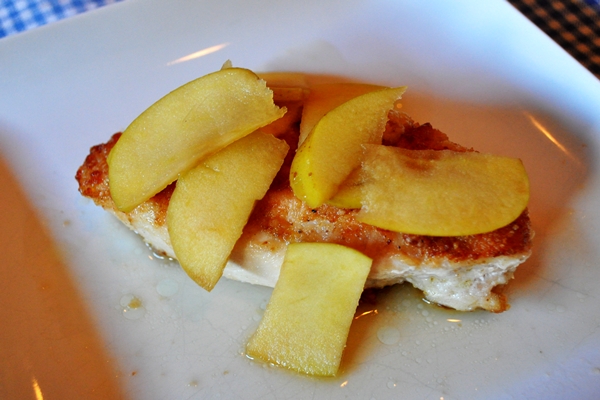

 Cake:
Cake: 
 Microwaveable sandwiches
Microwaveable sandwiches  Microwaveable burritos & wraps
Microwaveable burritos & wraps Soups
Soups microwaveable chicken nuggets
microwaveable chicken nuggets Hot drinks
Hot drinks Foods on a stick
Foods on a stick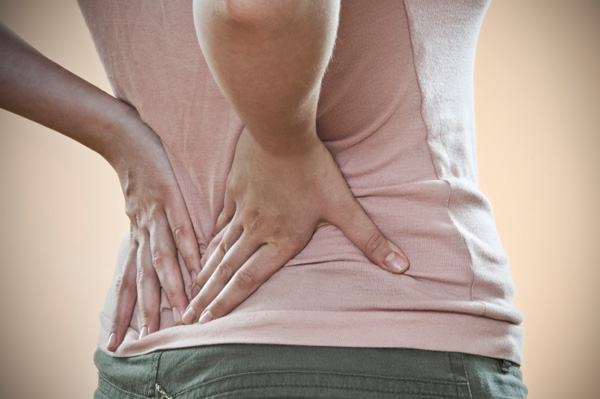

 Ice cream cupcake recipe
Ice cream cupcake recipe
 Snookie MonsterIngredients:1/2 ounce Rumplemintz1/2 ounce Baileys Irish Cream1/2 ounce KahluaSplash CreamDirections:
Snookie MonsterIngredients:1/2 ounce Rumplemintz1/2 ounce Baileys Irish Cream1/2 ounce KahluaSplash CreamDirections: Staten Island FerryIngredients:2 cups rum6 cups pineapple juiceIcePitcherDirections:
Staten Island FerryIngredients:2 cups rum6 cups pineapple juiceIcePitcherDirections: Florida Iced TeaIngredients:1/2 ounce vodka1/2 ounce gin1/2 ounce Triple Sec1/2 ounce rumOrange juiceSplash CokeIceLemon wedge for garnishDirections:
Florida Iced TeaIngredients:1/2 ounce vodka1/2 ounce gin1/2 ounce Triple Sec1/2 ounce rumOrange juiceSplash CokeIceLemon wedge for garnishDirections: GTL CocktailIngredients:1-1/2 ounce gin2 ounces tonic2 ounce lemonadeIceMint sprigsDirections:
GTL CocktailIngredients:1-1/2 ounce gin2 ounces tonic2 ounce lemonadeIceMint sprigsDirections:
 The GodfatherIngredients:1-1/2 ounce scotch1/2 ounce DrambuieIce
The GodfatherIngredients:1-1/2 ounce scotch1/2 ounce DrambuieIce Ron Ron JuiceIngredients: Vodka Cranberry juice Watermelon juice Maraschino cherries IceDirections:
Ron Ron JuiceIngredients: Vodka Cranberry juice Watermelon juice Maraschino cherries IceDirections: Blue BallsIngredients:1 ounce vodka3/4 ounce Blue Caruso3/4 ounce watermelon liquorSplash of 7-UpDirections:
Blue BallsIngredients:1 ounce vodka3/4 ounce Blue Caruso3/4 ounce watermelon liquorSplash of 7-UpDirections: Gorilla JuiceheadIngredients:1/2 ounce Jager1/2 ounce GoldschlaugerDirections:
Gorilla JuiceheadIngredients:1/2 ounce Jager1/2 ounce GoldschlaugerDirections: Sex on the BeachIngredients:1 ounce vodka1/2 ounce rasberry liquor1/2 ounce peach schnappscranberry juice, to tastepineapple juice, to tasteDirections:
Sex on the BeachIngredients:1 ounce vodka1/2 ounce rasberry liquor1/2 ounce peach schnappscranberry juice, to tastepineapple juice, to tasteDirections: Cabs are here beerIngredients:The nearest beverage Directions:
Cabs are here beerIngredients:The nearest beverage Directions:  Grenade Launcher
Grenade Launcher 



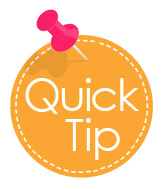
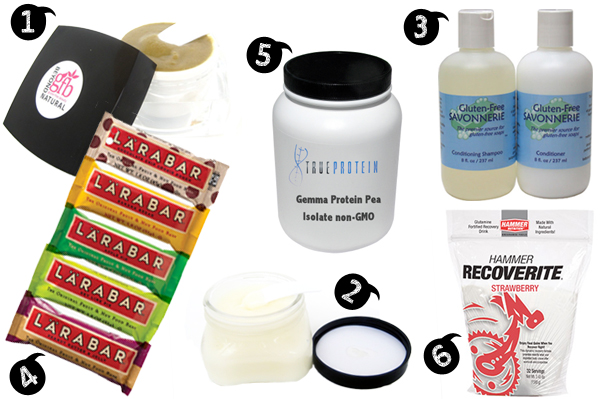
 Exfoliating Olive Oil CleanserGlutenFreeBeauty.com; $28
Exfoliating Olive Oil CleanserGlutenFreeBeauty.com; $28 Argan Body ButterGlutenFreeBeauty.com; $55
Argan Body ButterGlutenFreeBeauty.com; $55 Gluten-Free Savonnerie Shampoo and ConditionerGFSoap.com; starting at $3
Gluten-Free Savonnerie Shampoo and ConditionerGFSoap.com; starting at $3 Larabar nutrition barsLarabarStore.com; $25 for 16-count box
Larabar nutrition barsLarabarStore.com; $25 for 16-count box Gemma Protein Pea Isolate (non-GMO)TrueProtein.com; starting at $5 per pound
Gemma Protein Pea Isolate (non-GMO)TrueProtein.com; starting at $5 per pound Recoverite Recovery DrinkHammerNutrition.com; starting at $3 per serving
Recoverite Recovery DrinkHammerNutrition.com; starting at $3 per serving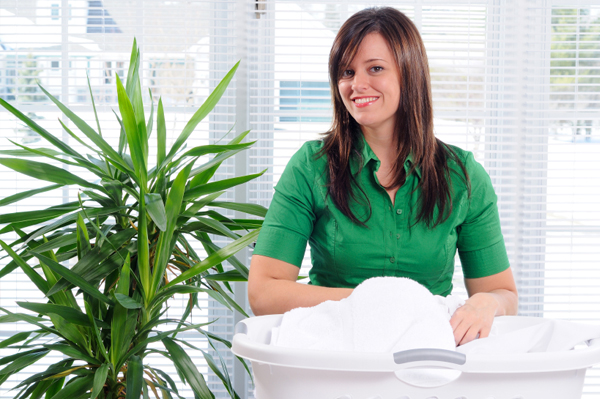
 Avoid the flu virus
Avoid the flu virus Wash hands frequently
Wash hands frequently Wipe things down
Wipe things down Wash your linens
Wash your linens Use high-efficiency filters
Use high-efficiency filters Clean your cleaning tools
Clean your cleaning tools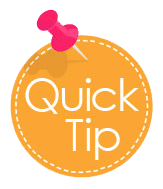 If someone in your household does come down with the flu, have them use disposable cups and utensils to minimize the risk of spreading germs.More on flu prevention
If someone in your household does come down with the flu, have them use disposable cups and utensils to minimize the risk of spreading germs.More on flu prevention Summer produce
Summer produce